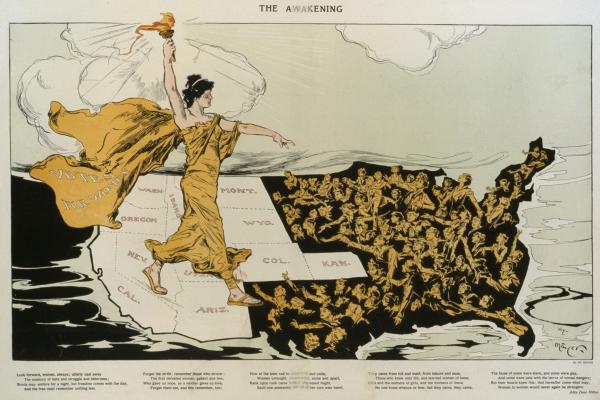SEXISM IS DEAD. So sayeth most men, according to a national survey in August. Women, on the other hand, aren’t quite convinced.
The poll by the Pew Research Center found that 56 percent of men, and only 34 percent of women, said they thought that “sexism no longer was a barrier” to women in this country. (A pair of adjacent headlines on washingtonpost.com summed it up: “Sexism is over, according to most men” immediately preceded “It’s 2016, and women still make less for doing the same work as men.”)
So, welcome to “post-sexist” America.
I imagine it will look a lot like the “post-racist” America that Barack Obama’s election in 2008 supposedly ushered in. At that time, a few days after Obama’s historic election, The Wall Street Journal wrote that “Barack Obama’s election as the first black U.S. president promises to usher in a new era of race relations.”
The paper quoted a senior Obama adviser as saying, “People say he is a post-racial candidate. When people say that, they seem to suggest that we are beyond the issue of race, that issues of race don’t matter.” But Obama will tell you, she continued, that “he thinks race does matter.”
Turns out the president was right.
AND NOW, if the country elects its first woman president this fall, will it be seen as a sign that the country has moved into a new era regarding justice and equality for women?
The campaign itself, of course, hasn’t been encouraging. Some wonder if the level of vitriol aimed at the first woman to receive a major-party presidential nomination is due in large part to the fact that she’s, well, a woman.
Over the last 50 or 60 years, overt sexism—like overt racism—has been made less and less socially acceptable. But a look at basic statistics for, say, women in leadership positions—from CEOs at top companies (4 percent) to members of Congress (19 to 20 percent)—should dispel the delusion that we live in an egalitarian society.
And the public rhetoric of the past year has had the effect of mainstreaming misogyny, just as it has mainstreamed anti-immigrant and anti-Muslim and anti-Latino sentiment.
Such rhetoric is problematic in itself—hateful words matter. It creates an environment where woman-hating (and racially charged antipathy toward Muslims, Latinos, et al) is seen in some circles as acceptable. But it doesn’t stop with words: Such an environment spawns increases in violence against women and other hate crimes. As William Brennan, author of Dehumanizing the Vulnerable: When Word Games Take Lives, put it, “the victimization of women has been and continues to be facilitated by dehumanizing terminology.”
And all of that will likely explode in magnitude when and if a woman becomes the nation’s commander-in-chief. We shouldn’t be surprised when the focus is on her hairstyle or clothes instead of her policies, or (God forbid) when the common Twitterverse attacks on her as a “bitch” or as “dangerously menopausal” slither into mainstream political discourse. And it’s not just men getting in on the act; women also buy into internalized sexism. The head of a Texas company said last year that women were disqualified from being president because “We’re built differently, we have different hormones.” She added that being president “should be left to a man, a good, strong, honorable man.”
It’s clear that shattering the presidential glass ceiling will no more signal the end of sexism than Obama’s victory marked the end of racism. And if history is any guide, it will get worse before it gets better.
But sometimes, no matter how disturbing, it’s necessary to expose a wound in order for it to heal.

Got something to say about what you're reading? We value your feedback!

